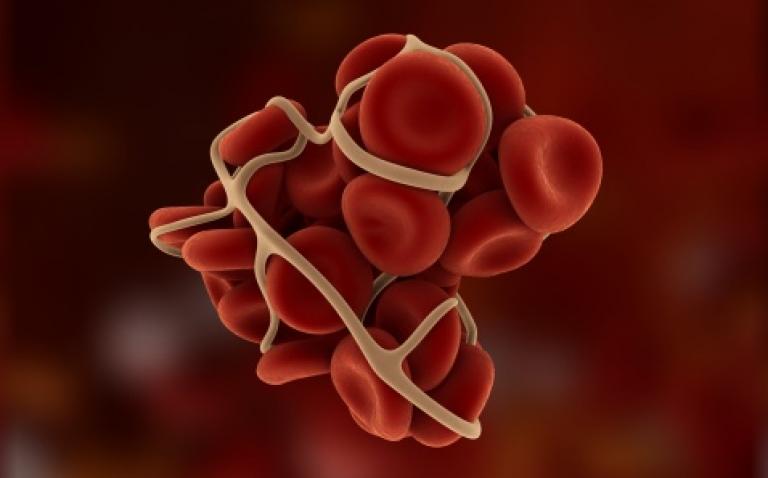The European Committee for Medicinal Products for Human Use (CHMP) has recommended approval of Bayer HealthCare’s oral anticoagulant Xarelto® (rivaroxaban) 2.5mg twice-daily in combination with standard antiplatelet therapy for the prevention of atherothrombotic events (myocardial infarction, cardiovascular death or stroke) after an Acute Coronary Syndrome (ACS) in adult patients with elevated cardiac biomarkers.
Elevated cardiac biomarkers confirm the ACS and characterise patients at high risk of recurrent events. The final decision of the European Commission on the approval is expected in the first half of this year.
“Today’s recommendation by the CHMP is recognition that Xarelto 2.5mg BID plus standard antiplatelet therapy can help save lives by reducing the risk of heart attack, stroke or cardiovascular death for patients with acute coronary syndrome,” said Dr. Kemal Malik, Member of the Bayer HealthCare Executive Committee and Head of Global Development.
Major cardiovascular events including cardiovascular death rates remain high for patients with ACS who currently only receive standard antiplatelet therapy following hospital discharge. Standard antiplatelet therapy targets only one pathway of clot formation – platelet activation. However, arterial blood clots are formed through the dual pathways of both platelet activation and thrombin generation. Furthermore, thrombin levels remain elevated following an ACS event and need to be addressed in the long-term.
Data from the pivotal Phase III ATLAS ACS 2-TIMI 51 study of more than 15,500 patients demonstrated that the addition of rivaroxaban 2.5 mg BID to standard antiplatelet therapy significantly reduced the composite primary efficacy endpoint of cardiovascular death, myocardial infarction or stroke in patients after a recent ACS compared to those who received standard antiplatelet therapy alone.
Rates of TIMI (Thrombolysis In Myocardial Infarction) major bleeding events not associated with coronary artery bypass graft (CABG) surgery were low overall, yet increased with the addition of rivaroxaban. But importantly, there was no increase observed with rivaroxaban in the risk of fatal intracranial haemorrhage (ICH) or fatal bleeding.
About Acute Coronary Syndrome (ACS)
ACS is a complication of coronary heart disease which is the single most common cause of death worldwide and one of the most prevalent non-communicable diseases in the world. ACS occurs when a blood clot blocks a coronary artery, reducing blood supply to the heart. This disruption of blood flow can directly cause a heart attack, or cause severe pain in the chest (unstable angina), a condition indicating that a heart attack may soon occur. Higher levels of cardiac biomarkers are associated with heart injury. Laboratory testing of cardiac biomarkers is already routinely done in clinical practice to confirm ACS.
About Venous and Arterial Thromboembolism (VAT)
Thrombosis is the formation of a blood clot inside a blood vessel, blocking a vein (venous thrombosis) or artery (arterial thrombosis). Venous and Arterial Thromboembolism (VAT) is caused when some or all of a clot detaches and is moved within the blood stream until it obstructs a smaller vessel. This can result in damage to vital organs because the tissue beyond the blockage no longer receives nutrients and oxygen.
VAT is responsible for a number of serious and life threatening conditions:
- Venous Thromboembolism (VTE) occurs when part of a clot formed in a deep vein, for example in the leg (known as deep vein thrombosis, or DVT), is carried to the lung, via the heart, preventing the uptake of oxygen. This is known as a pulmonary embolism (PE), an event which can be rapidly fatal
- Arterial Thromboembolism (ATE) occurs when oxygenated blood flow from the heart to another part of the body (via an artery) is interrupted by a blood clot. If this occurs in a vessel supplying blood to the brain, it can lead to a stroke, an event that can be severely debilitating or fatal. If it occurs in a coronary artery, it can lead to acute coronary syndrome (ACS), a complication of coronary heart disease which includes conditions such as myocardial infarction (heart attack), and unstable angina
VAT is responsible for significant morbidity and mortality, and requires active or preventative treatment to avoid potentially serious or fatal patient outcomes.










